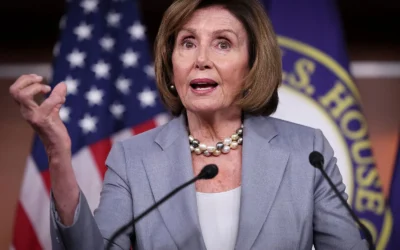Michigan Football to Kick Off 2026 Season in Germany Against Western Michigan
The University of Michigan’s football program is reportedly engaged in serious discussions to launch the 2026 season from an international turf: Frankfurt, Germany. This groundbreaking move is not just a step towards globalizing college sports, but an exciting prospect for Michigan and Western Michigan Universities that could pave the way for more international engagements in the future.
Introducing a New Era in College Football
As Major League Baseball, the National Football League, and even the National Basketball Association have embraced international venues, college sports have been more hesitant. However, the winds of change seem to be in the air, with Michigan’s proposed matchup against Western Michigan set to serve as a testing ground for the NCAA’s international aspirations.
Discussing the implications of holding a football game overseas, Michigan’s Athletic Director, Warde Manuel, stated, “This is an incredible opportunity for our program, our student-athletes, and our fans. Expanding our footprints globally not only helps us showcase the rich tradition of Michigan football but also gives our players and the community a unique experience that they won’t forget.”
The Story Behind the Potential Matchup
The 2026 season opener, initially set to take place in Michigan, could take a detour for this historic football clash. The University of Michigan and Western Michigan University are two institutions deeply-rooted in the state’s culture. However, plans to compete on an international stage could shift the narrative about college football and leverage the sport’s growing popularity worldwide.
Meanwhile, Western Michigan’s Athletic Director, Dan Bartholomae, shared similar sentiments. He expressed enthusiasm about the discussions: “This could be a milestone moment for Western Michigan football. Engaging with fans in Europe could help amplify our brand and bring awareness to our student-athletes. Plus, what an incredible experience for our players to play in such a vibrant city!”
The Growing Popularity of College Football in Germany
Germany has witnessed an increasing interest in American sports, especially football. The establishment of the German Football League and the success of NFL Europe made significant contributions to this phenomenon. A game like Michigan vs. Western Michigan would likely attract fans from across the continent, eager to witness American college football firsthand, which may lead to greater international attention at a time when college athletics are seeking to widen their reach.
According to various analytics, there is a burgeoning community of American sports fans in Europe, particularly among younger audiences captivated by the cultural fusion of American and European practices. Several European students even travel to the United States to catch a glimpse of their favorite teams during their college football diehards’ journey. A matchup in Germany could encourage this transatlantic exchange even further.
Challenges Ahead: Logistics and Execution
While the discussion presents thrilling opportunities, multiple logistical elements must be addressed before the plan can reach fruition. These include travel arrangements for teams, fan accommodations, and coordination with NCAA regulations. The university’s capabilities to host international competitions may face scrutiny, both on organizational and financial fronts, bringing into question the feasibility of bringing an NCAA-sanctioned game to Germany.
One of the foremost challenges will be ensuring the game meets NCAA standards. A clear understanding of how potential funding will work and gaining consent from both participating teams and their fan bases is essential. Furthermore, logistical details such as accommodating coaching staff and training facilities will need to be ironed out early in the planning stages.
Engaging with the Local Community
Both universities are also looking beyond the game itself to engage with local communities in Frankfurt. Plans for community outreach, including youth football camps and educational content, could serve to bridge the cultural gap and engage with local fans. There could be opportunities to showcase the academic programs and culture of both universities, propelling recruitment initiatives and establishing a long-lasting connection with Germany.
It’s not just about football; it’s about uniting two cultures through the sport. The game can serve as a platform for promoting cooperation, sportsmanship, and camaraderie between both American and German student-athletes.
The Road Ahead: Fan Reactions and Institutional Support
Fan reactions toward the international opener have been largely positive, with many supporters indicating excitement for the opportunity to watch Michigan Football play abroad. Social media buzz and discussions on forums highlight an eagerness among fans to pack their bags and travel to Germany for this historic occasion.
“I would absolutely go to Germany for the game! It would be a memory for a lifetime watching Michigan play in such a unique setting!” stated one enthusiastic fan. As discussions around the event evolve, it is likely that both universities will arrange specific travel packages for fans, creating tailored experiences that could further enhance this international venture.
Looking Forward: Setting Precedents for Future Opportunities
As the discussions develop, Michigan and Western Michigan will not only be making history but also setting a precedent that may inspire other college football programs. There’s already speculation regarding additional matchups abroad as universities witness the success of this event.
Such initiatives could trigger wider NCAA policy discussions about international games and transcend the traditional college football boundaries. Similarly, if successful, this could open the floodgates for more colleges to follow suit, gathering revenue from international merchandise sales, sponsorship deals, and elevated brand recognition.
Conclusion
As the Michigan football team prepares for a future that could include an exciting overseas opening game in 2026, both institutions must navigate several hurdles. Still, the discussed matchup represents far more than just a game; it signifies the potential for college football to evolve and reach collective audiences worldwide. The implications go beyond fanfare, impacting traditions, cultures, and opportunities forever.







